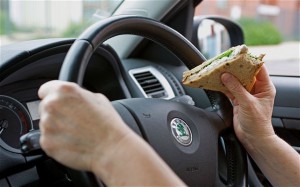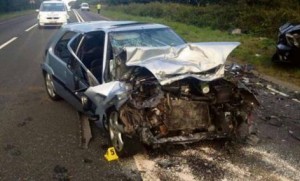Motoring Offences Information
General Practice Solicitors who deal with general criminal law won’t always know the perfect legal arguments that can be put forward on your behalf if you have been accused of any of the motoring offences below;
No insurance
If you don’t have valid insurance and the police stop you while driving, you are presumed guilty regardless of the reason.
When found guilty, or if you plead guilty to driving without having valid motor insurance in place then you will get 6 – 8 points.
Many people find that their insurance was cancelled without them knowing.
The Special Reasons Argument can be used if you are capable of demonstrating to the court that you genuinely and honestly believe that you had motor insurance in place. Ask an experienced motoring lawyer about the best way to construct a special reasons argument for your specific offence circumstances.
Speeding Road Traffic Offences
As well as 3 – 6 points, the penalty for speeding offences can include a discretionary ban, a fine and incurred court costs.
Following on from recent UK motoring case law, if you are going to succeed defending your speeding allegations, you will need to have professional evidence to support your legal argument.
Speeding offences often lead to 12 point totting up issues. UK motoring solicitors Patterson Law can help you to present an exceptional hardship defence and let you keep your driving licence in spite of exceeding 12 points on your license.
Drink Related Motoring Offences
The legal UK drink driving breath reading limit is 35mg. A one year disqualification is the minimum driving licence disqualification if convicted of drinking and driving.
To win defending a drink drive case, you will need to prove one of the following three points, either; you were not the driver, you were not in a public place, or that you didn’t drink alcohol until after you had finished driving.
The three other possible drinking and driving defences are that you only drove a limited distance, that it was a life threatening emergency or that you were unaware that you had had alcohol prior to driving.
Drunk in Charge Related Offences
In order for the prosecution to get a conviction for drunk in charge of a vehicle, they will need to show that you were above the legal drink drive limit and that you were in charge of the car.
A possible defence is to prove to the court that you were not intending to drive the vehicle until you were under the drink drive limit again.
If you are found guilty then you face 10 points or a driving ban.
Drug Driving
Driving while in excess of the drug driving limit is an offence, similar in many ways to drink driving, but also significantly different.
Because drug driving legislation covers the use of many different drugs, which are all made up of different chemicals, the limits and impairment caused by each is very different.
Another significant difference is that many drugs stay in your system long after their affects have passed, meaning that while you may feel perfectly safe to drive and unimpaired by the drug use, technically you can still fail a roadside drug test and lose your licence.
Additionally, many magistrates are treating drug use in the same way as alcohol use, and some drivers, who register 10 or more times over the drug drive limit are receiving bans in line with being 10 times over the drink drive limit. This can occur days after you last took the drug, when you are not impaired by its use at all.
While not condoning drug use in any way, this is obviously a massive issue for recreational users of drugs, who may not be legal to drive for many days afterwards.
Fail to Provide Driver Identity
Following a driving offence, you will receive a S172 information request. Failing to respond can lead to six points on your licence.
However, S172(4) and Section 172(7)(b) RTA 1988 provide statutory defences.
To establish the identity of the driver at the time of offence, you will have to demonstrate in court that you used reasonable diligence, or that you didn’t receive the s.172 information request at all.
Mobile Phone Offences
A mobile phone motoring offence is deemed to have been committed if you are holding & using the phone while driving.
Lots of Magistrates have many different opinions regarding mobile phone offences and the law.
Even if you are stationary at junctions or in a hold up, it is still an offence as you are still considered to be driving.
Driving Without Due Care and Attention
To prove the motoring offence of driving without due care and attention, the prosecution will have to prove in court that your driving standard fell below that expected from a careful & competent driver.
Driving without due care covers motoring offences from car park scrapes and scratches to offences such as undertaking on a motorway.
At the discretion of the police you may be offered a Driving Improvement Course as an alternative to prosecution.
Fail to Report
Section 170 of the RTA 1988 states that following an accident, if there is damage to either property, another vehicle or to a person then you are under a duty to stop and provide your details.
In circumstances where you weren’t able to exchange details at the time, you are required to report the accident at a police station as soon as is practicable and at most in less than twenty four hours.
If you go to court and are found guilty of failing to report or failing to stop then you face five – ten licence points or a discretionary ban.
If you were unaware that you had caused damage and can demonstrate to the Court that it would be reasonable for you not to be aware that you had had an accident then you have a possible legal defence.
For the most serious examples of these offences, you can be given community service or even a custodial sentence.
Dangerous Driving Offences

To be convicted of dangerous driving in court, the prosecution need to prove that at the time of the offence, your driving level fell beneath that expected. In addition, it needs to show that it was obvious to a competent driver that the driving is dangerous.

Magistrates Courts take offences involving dangerous driving very seriously, and as such, the punishments are commensurate with their views.

As such, if convicted you face a minimum 1 year ban, which automatically includes a re-test before you are allowed back on the road, as well as a potential prison term if your case is deemed to deserve it.
Driving without a Valid Licence
The offence of driving without a valid licence often causes confusion.
Driving without having visible L plates, or driving without ever passing a driving test are two examples of endorsable offences of this type.
If the DVLA asked you to return your current driving licence to them and they suspend your entitlement to drive, the offence is non-endorsable.
It’s a misnomer that in the case of ‘no licence’ offences, your insurance will automatically be invalid. This is not true.
Only an expert motoring lawyer will be able to successfully guide the Court as to whether your specific driving offence carries driving licence penalty points or not. Many Courts are not sure about this issue with no licence road traffic offences.
The majority of motoring offences can be defended successfully if you seek professional advice from noted motor law solicitors.